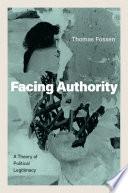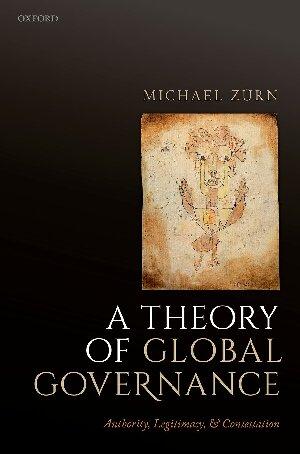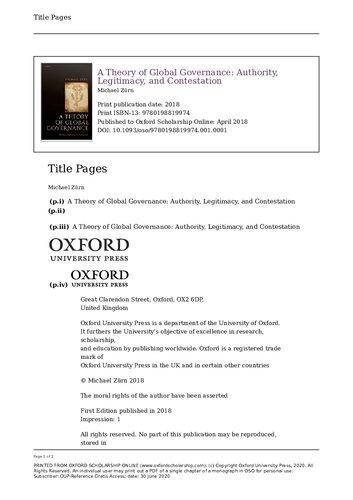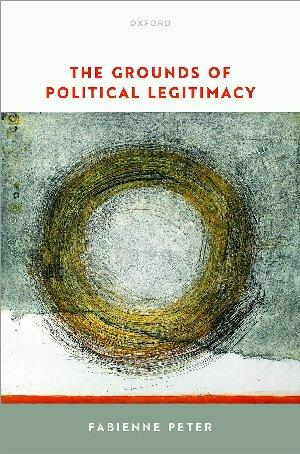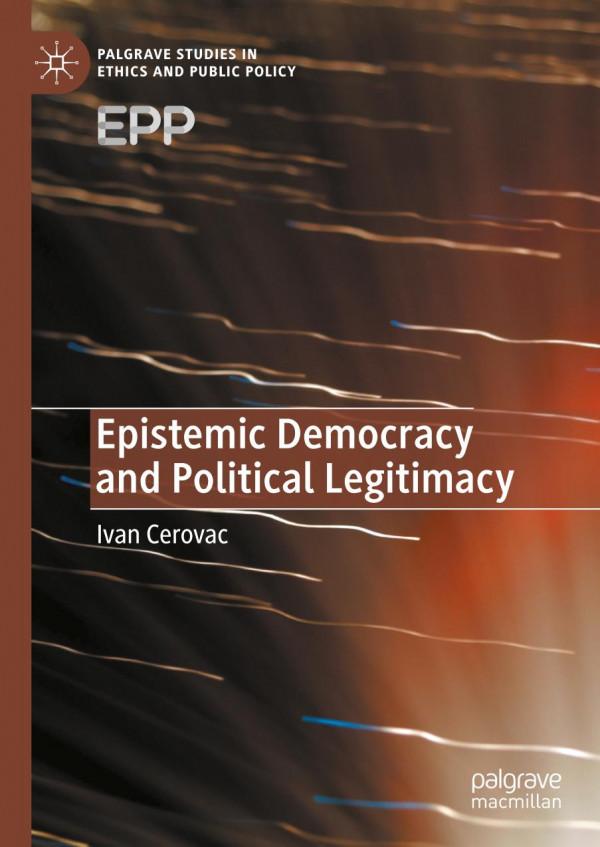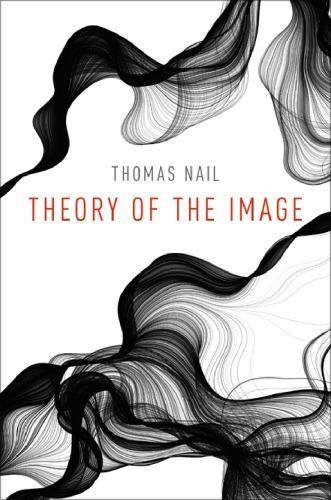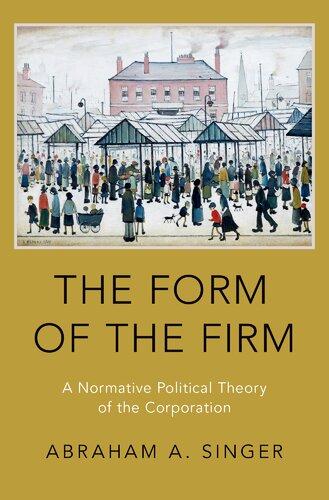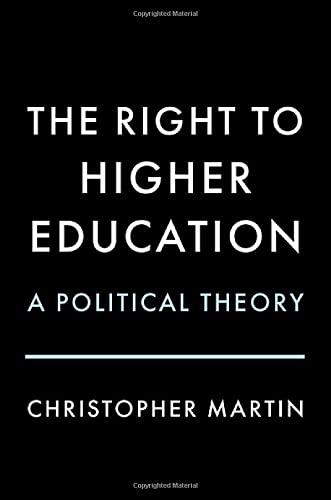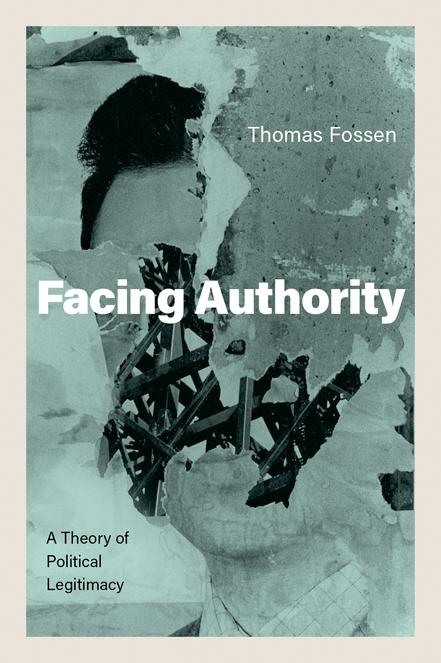Facing Authority
A Theory of Political Legitimacy
THOMAS FOSSEN
Oxford University Press is a department of the University of Oxford. It furthers the University’s objective of excellence in research, scholarship, and education by publishing worldwide. Oxford is a registered trade mark of Oxford University Press in the UK and certain other countries.
Published in the United States of America by Oxford University Press 198 Madison Avenue, New York, NY 10016, United States of America.
© Oxford University Press 2024
Some rights reserved. No part of this publication may be reproduced, stored in a retrieval system, or transmitted, in any form or by any means, for commercial purposes, without the prior permission in writing of Oxford University Press, or as expressly permitted by law, by licence or under terms agreed with the appropriate reprographics rights organization.
This is an open access publication, available online and distributed under the terms of a Creative Commons Attribution – Non Commercial – No Derivatives 4.0 International licence (CC BY-NC-ND 4.0), a copy of which is available at http://creativecommons.org/licenses/by-nc-nd/4.0/.
You must not circulate this work in any other form and you must impose this same condition on any acquirer.
Library of Congress Cataloging-in-Publication Data
Names: Fossen, Thomas, author.
Title: Facing authority : a theory of political legitimacy / Thomas Fossen. Description: New York, NY : Oxford University Press, 2024. Identifiers: LCCN 2023022875 (print) | LCCN 2023022876 (ebook) | ISBN 9780197645703 (hardback) | ISBN 9780197645727 (epub)
Subjects: LCSH: Legitimacy of governments. | Authority. | Regime change. | General will. Classification: LCC JC497 .F67 2024 (print) | LCC JC497 (ebook) | DDC 320.01/1—dc23/eng/20230609
LC record available at https://lccn.loc.gov/2023022875
LC ebook record available at https://lccn.loc.gov/2023022876
DOI: 10.1093/oso/9780197645703.001.0001
Printed by Integrated Books International, United States of America
Acknowledgments
While writing this book, I have benefited tremendously from the support of others on both a personal and a professional level. I feel extraordinarily fortunate.
I have worked on this book, on and off, for nearly a decade, building on a PhD dissertation on political legitimacy that goes back even longer. Rutger Claassen and Johan Olsthoorn have been close friends and philosophical conversation partners throughout the years, and their willingness to think with me (without sharing my views and affinities) has helped to shape and sharpen the book. David Owen has followed the project from the beginning, providing pivotal support and constructive feedback on the whole manuscript, sometimes even on different versions of the same chapter. My PhD advisors, Bert van den Brink, Joel Anderson, and Patchen Markell, have remained invaluable mentors. Their encouragement and support were vital, especially in the beginning. Joel has made many fruitful suggestions to this project, chief among which was putting me on Brandom’s trail. Special thanks are due to Herman Siemens, whose invitation to join his research project brought me back to Leiden and enabled me to begin developing this book, which turned out to be far more challenging than either of us anticipated.
It is impossible to fully acknowledge how much I have learned from countless other friends and colleagues. For stimulating conversations and feedback on parts of the manuscript, I wish to thank Lawrie Balfour, Banu Bargu, Robin Celikates, Frank Chouraqui, Wout Cornelissen, Ilaria Cozzaglio, Aart van Gils, James Gledhill, Loren Goldman, Tim Heysse, John Horton, Fiona Hughes, Rob Jubb, J.J. McFadden, Sem de Maagt, Wayne Martin, Tim Meijers, Darrel Moellendorf, Dorota Mokrosińska, Melissa Lane, Marc de Leeuw, Hans Lindahl, Janosch Prinz, Bert van Roermund, Enzo Rossi, Stefan Rummens, Andrew Schaap, Maria van der Schaar, Nica Siegel, Marin Terpstra, Mathias Thaler, and Manon Westphal. Several inspiring conversations with Chris Meckstroth have helped me at key points in the book. David Mak and Gijs van Maanen provided valuable research support and helpful comments. Students in my courses on practical judgment and Bruno Verbeek’s course on authority also provided helpful feedback. I was
able to present parts of the work in progress in workshops and colloquia in Amsterdam, Ankara, Bad Homburg, Edinburgh, Essex, Exeter, Frankfurt, Glasgow, Leiden, Milan, Norwich, Prague, Princeton, Reading, Rotterdam, and Utrecht, and am grateful to the participants in those discussions. Thanks to Tim Meijers for organizing a workshop on the manuscript in Leiden, supported by the Research School in Philosophy (OZSW), and to Meike Bokhorst, James Gledhill, Sofia Näsström, and David Owen for their incisive commentaries. Thanks also to Eva Erman and Niklas Möller for engaging critically in print with my earlier contributions, pressing me to clarify my ideas. Several anonymous referees have offered detailed and constructive criticism on the whole manuscript and on papers on which some chapters are based. The late Glen Newey offered characteristically generous and penetrating feedback on an early version; I am sad that we were unable to continue our exchanges.
My home base throughout these years has been the Institute for Philosophy at Leiden University. I am grateful for the institutional support and for the collegial environment. I have learned much from my colleagues and greatly enjoy their company. I would like to make special mention of Frank Chouraqui, Victor Gijsbers, Tim Meijers, Dorota Mokrosińska, and Bruno Verbeek.
It was a privilege and a pleasure to be able to spend time abroad as a visiting scholar on several occasions. Each of these visits was crucial for completing the book, and I am grateful to many colleagues, fellow research fellows, and helpful staff members for making those visits such stimulating experiences. For hosting me, I thank Tim Heysse of the RIPPLE group at KU Leuven, Wayne Martin at the University of Essex, Didier Fassin and Alondra Nelson at the Institute for Advanced Study in Princeton, and Rainer Forst and Beate Sutterlüty at the Goethe University (Frankfurt) and the Forschungskolleg Humanwissenschaften in Bad Homburg.
I am deeply grateful to my parents, Tom Fossen and Stella Muns, whose unfaltering support throughout my life continues to this day.
Most of all, I wish to thank my partner, Frederike Kaldewaij, for sharing a life with me, and for understanding what it is that I’m trying to do in this book. Besides helping to improve parts of the text with her philosophical mind and her writer’s eye, she has sustained me with joy and confidence, and joined me on adventures to distant lands. Just one day after I submitted a first version of this manuscript, we were joined by our daughter Lea, whose
presence, even though it did not expedite the work that remained, is immensely appreciated.
My research benefited from financial support from the Alexander von Humboldt Foundation, the Institute for Advanced Study in Princeton, and the Netherlands Organisation for Scientific Research (NWO, Venigrant 275-20-047 and Open Competition 360-20-290). A shorter version of Chapter 1 appeared in Social Theory & Practice under the title “Political Legitimacy as a Problem of Judgment” and Chapter 5 in Political Theory as “Political Legitimacy as an Existential Predicament.” Chapter 2 restates and hopefully improves upon my earlier attempts in The Journal of Political Philosophy (“Taking Stances,” 2013) and the European Journal of Political Theory (“Language and Legitimacy,” 2019).
Introduction
When your friends call on you to take to the streets and demand the fall of the regime, and you wonder how to respond, this prompts a practical predicament: Shall I go to the square to join the protests, try to ignore them, or, perhaps, express my loyalty to the regime in counterprotest? What stance should I take toward the regime? This problem, which I will refer to as “the question of legitimacy,” becomes particularly explicit and pressing at critical moments, such as popular uprisings, when a regime faces such massive opposition that its survival is at stake. But it is also a question that we all address in our everyday lives, if only implicitly, even where a regime is well established and generally accepted. We all find ourselves in a constellation of power in which various agencies and institutions attempt to rule us: regulating our behavior, providing education, raising taxes, controlling borders, granting or withholding citizenship, profoundly shaping our lives and even our sense of self in manifold ways. We inevitably comport ourselves toward those authorities in one way or another. Whether or not we stop to think about it, anyone facing authority also faces a practical predicament: Is this regime legitimate, or does it merely purport to be so? How to relate practically to the forms of power with which we find ourselves confronted?
What is at stake in the question of legitimacy is one’s practical relation to what we may loosely call “the authorities” or the “regime.” Of course, we can also speak of the legitimacy of particular leaders, laws, or political decisions. But the sense of political legitimacy at issue here goes deeper. The call for the regime to fall makes forcefully clear what is at stake: this is a struggle that touches on the political order as such; a conflict about the “right to rule.”
Struggles for political legitimacy tend to be situations of deep disagreement. The authorities and their critics may not just disagree about whether the regime is entitled to rule, but also why. For someone who tries to address this question from a practical point of view—wondering what to do, what stance to take—it can give rise to profound, even existential uncertainty, raising dilemmas about how to spend time and energy, where one’s loyalties lie, whether to risk life and limbs, and for what.
Facing Authority. Thomas Fossen, Oxford University Press. © Oxford University Press 2024. DOI: 10.1093/oso/9780197645703.003.0001
Faced with disagreement and uncertainty, political philosophers’ ambition is often to try to resolve it. Theories of political legitimacy usually try to identify the necessary and sufficient conditions for a regime to be legitimate. On this approach, a theory of legitimacy is essentially a normative codification project. The thought is that if you find the correct principles, then you can adjudicate who is right in a struggle for legitimacy. A wide range of standards has been proposed, from the provision of order and stability to human rights, consent, or collective self-government. Yet despite the best efforts, principles and criteria of legitimacy remain subject to deep disagreement and profound uncertainty, both in theory and in practice. Of course, the persistence of controversy does not show that the true theory cannot be found. But perhaps it ought to give us pause to ask whether this quest for moral knowledge is the most fruitful approach and whether it departs from an adequate diagnosis of the problem.
This book takes a different approach. It investigates the ways in which the question of legitimacy can be addressed, practically, in lieu of a theoretical solution. The key is to shift focus from the justification of principles to the practice of judgment. What is involved in judging the legitimacy of a regime, from a practical point of view? And what does it mean to do this well? What can one do, and what must one know, in order to aptly respond to this question in conditions of uncertainty and disagreement? In my view, the philosophical task for a theory of political legitimacy is not simply to find the right principles, but more fundamentally to explicate the ways in which the question of legitimacy manifests itself from a practical point of view, and illuminate the forms of activity through which we might engage it.
This shift in focus is only meaningful if judgment is not simply a matter of applying given principles to the case at hand. Indeed, I will argue that such a view misses the depth and complexity of what is at stake in the question of legitimacy. To treat judgment as the application of normative standards is to relegate disagreement and uncertainty about such standards to another domain, that of justification. What makes a regime truly legitimate then seems to be a question for philosophy to settle by means of moral argument. But this is in effect to wish away, rather than confront, disagreement and uncertainty within the horizon of judgment, for it holds out the promise of a solution that is in practice always deferred.
In a nutshell, I propose that we view judging legitimacy not as a matter of applying given principles, but of engaging in a complex of political activities. Judging legitimacy is doing various things, comporting ourselves
toward others, toward ourselves, toward the regime, and to aspects of the world that surrounds us. Part I explicates this understanding of the concepts of political legitimacy and judgment. Part II investigates the concrete forms of activity that constitute such judgment. It argues that the question of legitimacy appears in three distinct but interrelated ways. Whether the regime is legitimate is partly a matter of what it is like, how it is aptly represented or portrayed—say, as a parliamentary democracy, or a police state? It is also a question of identity: Who am I, and who are we? Can I recognize myself in who the authorities take me to be? And it is a question of the meaning of events: What happened here—was it a coup, or a revolution? These issues constitute the heart of the question of legitimacy: to engage with them is to engage with the question of legitimacy.
On the account I develop, addressing these questions is not just a matter of reflection. To understand what it means for such judgment to go well, we need to grasp the form of the activities that constitute judgment, rather than fixate on which judgment is substantively correct. In judging, one partakes in the ongoing and open-ended practices of political contestation through which a regime is constituted as what it is, we become who we are, and our world takes shape. The practice of judgment is co-constitutive of its object, its subject, and its surroundings. This tells us something about what is at stake in struggles for legitimacy. It doesn’t tell us which judgments we ought to make, what stance to take, who to be. This is not to deny that criteria play a meaningful role in judging, and that judging is partly a matter of articulating reasons. Rather, it is to draw attention to the ways in which reasons come into play while also remaining in question. In this sense, political reality resists the attempt to resolve the question philosophically. Good judgment is not a matter of correctly applying justified principles, but depends on our modes of involvement in a situation, on the ways in which we experience and respond to various aspects of political reality in conditions of uncertainty and disagreement.
What to expect from a theory of political legitimacy?
It may be best to announce clearly at the outset: the question of legitimacy will not be resolved here. Instead, progress lies in a better grasp of the problem, and of why it resists the kind of solution that philosophers have sought to provide for it. For the purposes of this book, I bracket the question of what
makes a regime legitimate. The brackets stay put for the duration of our enquiry and the question remains open.
What is offered here may be called a ‘theory of political legitimacy,’ but it differs significantly in shape and substance from what usually goes by that name in political philosophy or political theory (which I consider synonymous). For many philosophers, theorizing about political legitimacy just means articulating and justifying normative standards of legitimacy (as I discuss in Chapter 1). From that point of view, it may hardly sound intelligible to say that the present project bears on the same problem at all. I nonetheless think it is apt to call this a theory of legitimacy because the book aims to do what in my view a theory of political legitimacy ought to do in the first place, but is neglected by mainstream theories.
What I mean by a theory of political legitimacy is a philosophical framework for the analysis and diagnosis of a certain kind of political problem, that of how to relate practically to the political order with which one finds oneself confronted. I assume that the question of legitimacy is first and foremost a practical predicament that people face, implicitly or explicitly, in real-life political situations. The task of a theory of political legitimacy is to grasp the nature of that predicament, to render it perspicuous, to articulate what is at stake, and to illuminate the ways in which it might be addressed (if not resolved). By saying that the issue is in first instance a practical predicament I do not mean that a theory of legitimacy must offer readily applicable answers or policy recommendations, but that it should do justice to the ways in which the question manifests itself in practice. Prior to specifying when authorities are legitimate or illegitimate, we need to inquire what it is we are doing in asking whether a regime is legitimate or not—to make explicit how the question of legitimacy presents itself and engages us in practice.
One reason why it is important to think about political legitimacy in terms of judgment is that the neglect of this deeper question can lead to distortions and may ultimately render a theory meaningless. To see this, consider for a moment an example from a very different context, the field of aesthetics. Stanley Kubrick’s Napoleon is sometimes called the “greatest film never made”: Kubrick spent years of his life and thousands of dollars preparing for this movie, but he envisioned it on such a grand scale that the filming never got off the ground. Now imagine a group of academic philosophers in a seminar room who want to devise a theory of beauty, or of artistic excellence. It would be very odd if they were to do so by imagining what Kubrick’s film
would have been like, hold that up as a paradigm of cinematic beauty, and try to draw up criteria of what makes it so. This would be odd not so much because there are no criteria of beauty, but because you cannot intelligibly claim to judge an object beautiful if you have never actually encountered it in the world, however much you learn about it from historical sources and the testimony of others. Aesthetic judgment emerges from the encounter with the object, from the interplay between subject and object. The aesthetic object needs to hold you in its thrall. Whatever these thinkers are doing, it is a very different practice from our everyday judgments of art, and it is hard to see how whatever they come up with in this manner would bear on the latter at all.
Could something similar be true of judging political legitimacy? To what extent does the concrete encounter between subject and authority have a similar significance with respect to the question of legitimacy, as the actual encounter with an artwork has for judgments of beauty? The point here is not to reduce politics to aesthetics. Rather, the point is that political philosophers should not simply draw up criteria, but try to think through what it means to judge legitimacy in practice, just as real philosophers of aesthetics (contrary to their imagined counterparts) try to think through the involvement of subject and object in aesthetic judgment. To draw attention to judgment is not an original move; there is a vast literature on political judgment (much of which is inspired by Kant’s account of aesthetic judgment and Arendt’s reading of it, which I discuss in Chapter 3). Yet theorists of judgment have hardly thought about political legitimacy, and theorists of political legitimacy have hardly thought about judgment.
We can approach this point also from the angle of a theory of meaning. Our imaginary aestheticists have started a new language game in their seminar room, deploying words familiar from everyday art criticism in novel ways. That happens all the time in academic discourse and is not per se problematic. It becomes problematic if one makes the mistake of simply assuming that theoretical concepts have the same significance in the context of an academic dispute as the practical concepts from which they are derived do in the relevant practice. Differences of context between practical situations (like the seminar room and the barricades) and differences of perspective among people within them matter. At least they do on the pragmatist theory of meaning with which I operate (more about this in Chapter 2). This book is an attempt to think through how such differences of context and perspective matter to a specific kind of political predicament.
This presupposes a distinction—albeit not a rigid one—between theory and practice. Thinking philosophically about political legitimacy is not exactly the same activity as disputing legitimacy in situ. That does not mean that these activities can be isolated from each other, or that theories relate to politics from the “outside.” But insofar as political philosophy seeks to understand political phenomena, and not directly change them, it is a second-order practice. While nowadays this is for the most part an academic enterprise, it is not disconnected from its subject matter, and political agents (including philosophers themselves) can draw on ideas and arguments proposed there while engaging in political action and discourse. More directly, philosophical theories can themselves be put forward as political interventions, as historical works of political theory often were. So philosophical dispute and political performance are not mutually exclusive categories. Thomas Hobbes’s Leviathan is a paradigmatic example. While Hobbes did indeed offer something we can see as a criterion of legitimacy (roughly, that one ought to accept any regime that is reasonably effective at securing order and stability), he did so in the context of a much deeper enquiry into what it means to be a political subject, the nature of authority, and the place of both in the world—thereby engaging performatively in the forms of activity that I take to be constitutive of judging legitimacy. And the manner in which he did so, both in terms of the topics he addressed, and the rhetorical force and framing of his project, evinces an acute sense of the conditions of his own involvement.
Contemporary theorists of legitimacy could insist that their work should likewise be understood as a situated political performance. And yet (as we shall see in Chapter 1), their project is often framed far more narrowly as a quest for correct normative standards, in abstraction from seemingly “descriptive” concerns about the nature of power and the identity of subjects, which are relegated to the social sciences. What is missing here is a reflexive sense of the forms of activity—and of judgment—one engages in when proposing such a theory, as well as curiosity about what else might be involved in addressing the issue besides exchanging moral arguments. There are important exceptions. Chapter 1 also shows that Jürgen Habermas and John Rawls are highly attentive to the specificities of the context and perspective from which their principles of liberal and democratic legitimacy are supposed to make sense, and that these principles are not to be taken as adjudicating but rather expressing the legitimacy of a regime as such. Still, they do not give us an explicit alternative account of what is involved in judging the legitimacy of a regime.
It does not follow from my refusal to offer prescriptions that the theory offered here is merely descriptive. To classify theories as purely “normative” or “descriptive”—often with the insinuation that the latter properly fall within the remit of social science, not philosophy—gives the misleading impression that those endeavors are conceptually independent and can be meaningfully pursued in isolation from each other. This study takes its bearings from the philosophy of language, theories of action, and political ontology rather than moral theory. But it is normative in a sense, not because it aims to solve political questions with action-guiding answers, but because it tries to explicate the political point of an irreducibly normative concept, to offer a sense of orientation to what is salient where legitimacy is in question from a practical point of view, and to articulate what it means to judge well in such situations.
Overview
The first part of this book develops a philosophical vocabulary for grasping the question of legitimacy. Part II goes on to explore in detail three distinct ways in which the question of legitimacy manifests itself in practice. Chapter 1 examines how the question of legitimacy is framed in contemporary approaches, by explicating their largely implicit views of judgment. Despite the variety in content, so-called moralist and realist theories of legitimacy typically share the same form, which I call “normativism”: a theory of legitimacy is a codification project, concerned with the articulation and justification of normative standards. This assumes that judging legitimacy appropriately is a matter of applying the principles offered by a philosophical theory to a case at hand. According to this picture, disagreement and uncertainty are to be addressed at the level of justification; there is no room, within the horizon of judgment, for coping with them. Even political realists, who argue that the moralist mainstream of political philosophy is out of touch with reality, have not developed a significantly different way of thinking about the question of legitimacy: they tend to look for alternative, nonmoral criteria of legitimacy, but they leave unquestioned the underlying presupposition that distinguishing between legitimacy and illegitimacy is a matter of applying given principles. The chapter goes on to argue that John Rawls and Jürgen Habermas exemplify a different picture of how principles relate to practice, which is more attuned to the political conditions in which the question of legitimacy arises, albeit in the highly particular setting of liberal
democracies. Still, their grasp of what judging the legitimacy of a regime involves remains implicit in the performative upshot of their writings.
What does it mean to say that a regime is legitimate or illegitimate?
Chapter 2 draws on recent pragmatist philosophy of language, especially the seminal work of Robert Brandom, to conceptualize political legitimacy in a way that avoids the dichotomy between the normative and the descriptive. It develops a conception of politics as stance taking toward rule, and explains the meaning of the concept of political legitimacy in terms of the use of ‘legitimacy’ in that form of political practice. The role of the concept of legitimacy in this type of context is to make your practical stance toward the regime explicit and to dispute it with others. Legitimacy isn’t a self-standing property that political authorities have or fail to have under certain independently specifiable conditions. Rather, it is a normative status that is attributed or withheld from concrete, embodied perspectives of political subjects taking stances toward a regime. A key challenge in this chapter is to explain the difference between legitimacy de jure and de facto what it means for something to be legitimate, as opposed to its merely being taken as such by others, or indeed by oneself. The key is to interpret this difference in terms of the differences of perspective among participants engaged in stance taking, rather than with reference to a property with independently specifiable necessary and sufficient conditions. The distinction between something’s being legitimate and its being merely taken as such arises, and only makes sense, from a practical point of view. The resulting view both avoids positing perspective-independent moral properties to which judgments are answerable, and steers clear of the Weberian collapse of normativity into facticity, which is common in social-scientific approaches to legitimacy, although it does not tell us whether to call a regime legitimate or illegitimate in concrete cases.
Chapter 3 turns from the meaning of legitimacy to the problem of judgment. Judgment is understood here as a complex of practical activities through which our sense of political reality is constituted, maintained, transformed, and sometimes subverted. This contrasts with two predominant models in political theory: judgment as norm application and reflective judgment. Despite their differences, those two models have assumptions in common: they identify judgment with a discrete moment of decision and with the exercise of a specific mental capacity (or an interplay of mental capacities). In contrast, judgment is cast here as an ongoing, open-ended, and intersubjective practice. Perhaps counter-intuitively, decisions are not
decisive for judging; to judge is to partake of a practice. This enables us to rethink what it is for political judgment to go well or poorly, drawing attention not to the operations of our minds, but to the specific forms of practical involvement in a situation and engagement with others that constitute judgment; to what one can do, practically, rather than what one should know, theoretically, in addressing the question of legitimacy. What makes political judgment such a challenge is not so much our lack of philosophical knowledge (what is usually meant by a “theory of legitimacy”), but rather the stubborn character of political reality and the precariousness of our practical grip on that reality.
To get a more concrete understanding of what is involved in judging legitimacy, we need to develop a more textured account of the activities that constitute judgment in a struggle for political legitimacy. Part II builds on the theoretical framework developed in Part I to investigate the ways in which people can practically engage with the question of legitimacy, and what it means to do this well.
The philosophical question at stake in Chapter 4 is how judgment (of legitimacy) relates to its object—political authorities. Is the regime aptly called a parliamentary democracy, or an arm of global imperialism? Are the leaders genuinely elected representatives, or a gang of thugs? Normativist approaches treat these questions as preliminary matters, prior to judging legitimacy. In contrast, on the view presented here, the question of legitimacy is profoundly a matter of what power is like in a particular context. The practice of representing power is integral to judging: judging legitimacy is a matter of representing or portraying relations of power. To call the form of power with which one finds oneself confronted a “state,” for example, is not merely to describe it, but to partake of the practice of representation through which the state is constituted as what it is. Judgment is co-constitutive of its object. Good judgment, then, is not simply answerable to reality (truthfulness)—doing justice to the way things are with the regime—but also has a creative dimension (virtuosity).
Chapter 5 considers the role of the subject of judgments of legitimacy: someone who finds themself confronted by power. Philosophically, what is at stake here is how to grasp the relation between identity and political legitimacy. Does the appeal, in many struggles for legitimacy, to a sense of who “I” am or who “we” are simply reflect a contingent psychological disposition, or is there some internal, conceptual connection with legitimacy? How, if at all, does one’s identification with a nation, gender, or otherwise bear
on the legitimacy of the regime with which one finds oneself confronted? The chapter proposes that identification is integral to judging legitimacy. Identity is not a ground for an answer to the question of legitimacy, but part of what is at stake in it. A struggle for legitimacy is a struggle over the constitution and characterization of collective selfhood, and judging legitimacy is to partake in such a struggle. The question of legitimacy is an existential predicament: a question of who you are. I explicate three qualities of this dimension of judgmental practice: consistency, integrity, and responsiveness.
Having considered the role of the object of judgment and the identity of the judging subject in judging legitimacy, it remains to explore how judgment relates to its surroundings, in Chapter 6. The encounter between subject and authority is temporally and spatially situated, and where and when it occurs matter to the judgment that is called for. The chapter focuses specifically on the significance of historical and current events for judging legitimacy. Whereas normativist approaches take events as fixtures by treating their meaning, at the moment of judgment, as a given, I build on the initial account of the temporality of the act of judgment advanced in Chapter 3, to propose that we think about judgment ‘in the present progressive,’ as standing in an open-ended practical relation to events. In taking a stance toward the regime, a judging subject responds to and partakes in events. Such judgment is therefore exposed to the disagreement and uncertainty to which the questions “What is happening?” and “When are we?” give expression. Coping with these questions involves grappling with the ways in which multiple timelines intersect and clash in an encounter between subjects and authorities. Judgment in this respect is a matter of engaging in a dimension of political activity that I shall call ‘timecraft.’ Here, again, I close by reflecting on the virtues of this judgmental activity, which I label kairos, virtù, and (again) responsiveness.
1 Beyond Codification
1.1 Introduction
What is involved in judging the legitimacy of a regime, and what does it mean to do this well? Theories of legitimacy rarely address this question explicitly.1 But that does not mean they do not have a view about it. This chapter aims to reconstruct the largely implicit views of judgment in the approaches to political legitimacy that predominate today, and to highlight some of their presuppositions.
Surveying the academic landscape, one cannot fail to notice a chasm between philosophical and social scientific approaches to the topic. As many an encyclopedia entry attests, philosophers work with a normative conception of legitimacy and social scientists with a descriptive one.2 Political legitimacy in the normative sense refers to a normative status of political institutions, usually understood as the moral right to rule. The task description assigned to philosophers is to specify the necessary and sufficient conditions for political authority to be legitimate (de jure). Which moral standards must a regime meet to qualify as legitimate? Social scientists, in contrast, typically abstract from the normative status of a regime and examine the empirical conditions and effects of its being taken to be legitimate by subjects (de facto). Under what conditions are individuals or groups likely to hold a state to be legitimate, and what effects does the belief in legitimacy have on a political system?
In terms of judgment, according to this division of labor, it would be for social scientists to enquire how people in fact judge, while philosophers ask not exactly how people can or should judge, but rather which judgments they ought to render.3 You may already see a gap opening up here, for neither
1 The only study I have found that directly speaks to this is the following insightful essay: Mulligan, “Legitimacy and the Practice of Political Judgement.”
2 For example: Ansell, “Political Legitimacy”; Beetham, “Legitimacy”; Dogan, “Conceptions of Legitimacy”; Flathman, “Legitimacy”; Peter, “Political Legitimacy”; Simmons, “Legitimacy”; Bagg and Knight, “Legitimacy.”
3 As to the former, see Jost and Major, The Psychology of Legitimacy
Facing Authority. Thomas Fossen, Oxford University Press. © Oxford University Press 2024. DOI: 10.1093/oso/9780197645703.003.0002
approach raises the question of what it means to judge well. As I will argue, Max Weber’s social scientific redefinition of legitimacy in terms of people’s beliefs has driven a wedge between the practical meaning of the term and its scholarly use, generating persistent confusion. Meanwhile, philosophers’ focus on what “makes” a regime legitimate treats legitimacy as an abstract normative property, without illuminating the practical predicament at issue. Much philosophical work on legitimacy shares a distinctive form (despite the variety in content), which I call “normativism”: the theorist aims to articulate and justify normative standards, presupposing that judgment is a matter of applying such standards to a case at hand. A theory of legitimacy becomes essentially a codification project. This framing of the problem has become so ingrained that it tends to be taken for granted. As we will see, even political realists who recently proposed alternatives to the moralism of mainstream theories remain committed to normativism. But this is, in fact, a very narrow understanding of what a theory of legitimacy is supposed to offer. None of these approaches has paid sustained attention to the ways in which the question of legitimacy presents itself, and the forms of activity through which it might be addressed in practice (if not resolved).
To begin to explore what a different way of thinking philosophically about legitimacy might look like, I turn to John Rawls and Jürgen Habermas. In their theories, principles have a rather different role than in normativist theories: they express rather than adjudicate judgments of the basic legitimacy of a constitutional-democratic regime. Neither Rawls nor Habermas purports to resolve the question of legitimacy philosophically. But if their principles are expressive of the legitimacy of the regime as such, they do not seem to get to the bottom of the problem. Still, I find implicit in the performative upshot of their theories of constitutional democracy intimations toward a different picture of what judging the legitimacy of a regime involves. Pursuing those intimations points us toward a “pragmatist” approach. It shifts the direction of enquiry from the content of principles to the activity of judging. The task for a theory of legitimacy, on this view, is in first instance to grasp the various ways in which questions of legitimacy present themselves in concrete situations, prior to, and perhaps instead of, resolving them philosophically.
The aim of this chapter is to explicate these notions of judgment and thereby to undermine normativism’s prima facie self-evidence—not to refute it. The limitations of normativism will come into view over the course of the book. Each of the chapters in Part II argues, in a different way, that
normativism is not equipped to respond to disagreement and uncertainty within the horizon of judgment. Instead, disagreement and uncertainty are relegated to the domain of justification, which is logically prior to judgment but in practice indefinitely deferred. This holds out the promise that the question of legitimacy will be philosophically resolved, but in effect merely wishes away uncertainty and disagreement.
1.2 Weber’s legacy
The traditional division of labor has its roots in the early twentieth century in the inestimably influential work of Max Weber.4 Weber insisted emphatically on a strict separation of facts and values. Only the former are the proper object of study of social scientists in their role as scientists. It wasn’t that social scientists ought not concern themselves with value judgments; Weber often involved himself in political debates. Nor did he mean that discussions of value were pointless or meaningless. Rather, his claim was that scientists should be clear about the status of their claims. Science has a kind of authority over matters of fact that it lacks over matters of normative evaluation, and scientists should not misuse their academic status to give undue credence to unscientific claims:
There is no (rational or empirical) scientific procedure of any kind whatsoever which can provide us with a decision here. The social sciences, which are strictly empirical sciences, are the least fitted to presume to save the individual the difficulty of making a choice, and they should therefore not create the impression that they can do so.5
Underlying this view of the task of social science was a view of the nature of normativity. Normative questions cannot in principle be rationally settled. Meaningful discussion of values is possible, but the point of such discussion
4 ‘Legitimacy’ has a long-standing history, both as a philosophical term of art and as a practical political concept. In a detailed history of the term, Thomas Würtenberger locates its emergence as a key term of political contestation in the early nineteenth century, although it played a role in philosophical discourse about the state long before that. Würtenberger, “Legitimität, Legalität,” 678. See also Mulligan, “The Uses of Legitimacy in International Relations,” 356–62; Applbaum, Legitimacy, 21–22.
5 Weber, “The Meaning of ‘Ethical Neutrality,’ ” 19.
is not to justify the grounds of a decision, but to clarify what one is ultimately committed to.
In this light, it may strike us as paradoxical that legitimacy, a normative concept par excellence, is primarily a sociological category for Weber, rarely found in his political writings. But the meaning of legitimacy in Weber’s sociology is equivocal. On the one hand, he refers to legitimacy as an entitlement claimed by authorities: “Every [system of rule] attempts to establish and to cultivate the belief in its legitimacy.”6 Believing in legitimacy is a matter of regarding the authorities “as in some way obligatory or exemplary.”7 Here, legitimacy clearly figures as a normative concept. But in a move that remains a source of confusion and ambiguity in the social-scientific literature, Weber then goes on to redefine legitimacy, for sociological purposes, in terms of the belief in legitimacy: “Naturally, the legitimacy of a system of [rule] may be treated sociologically only as the probability that to a relevant degree the appropriate attitudes will exist, and the corresponding practical conduct ensue.”8 So Weber uses “legitimacy” in two different ways, corresponding to two different perspectives or standpoints. From a participant’s perspective, it refers to an order’s normative status, its binding or obligatory character, the validity of which is beyond the pale of social science. From an observer’s point of view, it is a descriptive measure of the extent to which individuals attribute this normative status to a regime. The latter is sociologically relevant because of the efficacy of the beliefs or attitudes of a population for the operation of political institutions.
Weber’s descriptive redefinition of legitimacy in terms of belief in legitimacy is unfortunate. One could avoid the circularity by appealing to cognate terms, speaking, for example, of belief in “rightness” or “propriety.”9 But the problem remains that legitimacy, from a first-person perspective, is a normative status, as Weber himself notes. From a practical point of view, whether something is legitimate and whether it is taken or treated as such are clearly distinct questions. When a crowd cries “illegitimate” in front of a government building, they are not issuing a report about their lack of support, but a reproach. And when a president claims that they are the only one
6 Weber, Economy and Society, 1:213. I translate Herrschaft as “rule” rather than “domination” because “domination” carries a negative connotation of naked power that “rule” and “Herrschaft” do not.
7 Weber, 1:31.
8 Weber, 1:214.
9 Easton, A Systems Analysis of Political Life, 278; cf. Nozick, Anarchy, State, and Utopia, 134; Simmons, “Justification and Legitimacy,” 749.
who can legitimately rule, they thereby imply that their rule ought not to be subverted. Weber’s redefinition tempts scholars to lose track of the difference of perspective involved between a practical and a sociological context, and to equivocate between saying that a political authority is taken to be legitimate (de facto) and that it is legitimate (de jure). This conflation of legitimacy and belief in legitimacy can be found in much of the social-scientific literature after Weber.10 As a consequence, it comes to look as though being legitimate were “merely a matter of having obedient followers,” as one commentator aptly put it (and as many others similarly argued).11
Many social scientists nowadays take care to acknowledge that legitimacy is also, and perhaps first and foremost, a normative concept.12 No doubt this is due, in part, to David Beetham’s influential critique of Weber. Beetham argued that it is crucial, also for the purposes of social science, to conceptualize legitimacy as a normative status. A legitimacy claim is an assessment of the quality of a regime, not of people’s beliefs about it. “[T]he social scientist, in concluding that a given power relationship is legitimate, is making a judgement, not delivering a report about people’s belief in legitimacy.”13 What makes such judgments scientifically respectable for Beetham is that the social scientist does not judge by reference to his or her own preferred standards, but by standards that “pertain within the society in question.”14 A social-scientific judgment of legitimacy is one of “legitimacy-in-context, rather than absolutely, ideally or abstractly.”15 This stands in contrast to philosophy, which he sees as concerned with “independent or universal criteria of the right or the good.”16
10 Here’s a sampling: Dahl, Modern Political Analysis, 53–54; Easton, A Systems Analysis of Political Life, 287–88; Lipset, “Social Conflict, Legitimacy and Democracy,” 88; Weatherford, “Measuring Political Legitimacy”; Zelditch, “Theories of Legitimacy,” 33.
11 Turner, “Review,” 1045; cf. Schaar, “Legitimacy in the Modern State,” 108; Pitkin, Wittgenstein and Justice, 280–86; Habermas, Legitimation Crisis, 97–102; Grafstein, “The Failure of Weber’s Conception of Legitimacy.” Amanda Greene defends the moral value of Weber’s conception of legitimacy: Greene, “Legitimacy without Liberalism.”
12 For example, Gilley, The Right to Rule, 3; Hurrelmann, Schneider, and Steffek, Legitimacy in an Age of Global Politics, 3; Zelditch, “Theories of Legitimacy,” 33.
13 Beetham, The Legitimation of Power, 13. Beetham’s book sparked a debate about the usefulness of the concept of legitimacy in social science: O’Kane, “Against Legitimacy”; Beetham, “In Defence of Legitimacy”; Barker, “Legitimacy: The Identity of the Accused”; O’Kane, “Legitimacy and Political Science.” Hurrelmann, Schneider, and Steffek see Beetham as exemplifying a turn toward processes of legitimation; Legitimacy in an Age of Global Politics, 8–9. Beetham’s conception was taken up, for example, by Gilley, The Right to Rule. For related discussions, see also Coicaud, Legitimacy and Politics; Barker, Legitimating Identities
14 Beetham, The Legitimation of Power, 13.
15 Beetham, 14.
16 Beetham, 13, cf. 5–7.
In spite of his emphatic critique of Weber,17 Beetham’s own conceptualization falls prey to the same problem. If the social scientist is to abstain from applying his or her own criteria, then whose standards of legitimacy are to count? Those that pertain in the society, Beetham says. But what if there is disagreement about these criteria within a society? Which and whose criteria are to count as the standards of the society? The social scientist will want to remain neutral here. So one answer might be to refuse to decide, and say that legitimacy is a matter of degree: the more people in terms of whose beliefs the authorities can be justified, the more legitimate they are. Indeed, this is what Beetham’s view boils down to. He says: “A power relationship is not legitimate because people believe in its legitimacy, but because it can be justified in terms of their beliefs.”18 But is this proposal so different from Weber’s, after all? Despite Beetham’s insistence that social scientific claims about legitimacy are judgments, they remain reports or descriptions of a sort—of “the degree of congruence . . . between a given system of power and the beliefs, values and expectations that provide its justification”19 and not attributions of a normative status. Consequently, the concept of legitimacy means something very different in the hands of the social scientist than in the hands of those claiming and contesting legitimacy in practice. Again, whether something is legitimate, and whether it conforms to any number of people’s standards of legitimacy—these are not the same question. Although Beetham is clearly aware of the distinction, his redefinition of legitimacy obscures it because it drives a wedge between what ‘legitimate’ means in the mouth of a participant and a scientific observer—exactly the problem with Weber. In the next chapter, I pursue a strategy for conceptualizing political legitimacy that clears up this lingering confusion between something’s being legitimate, and its merely being taken as such, by attending to the different perspectives from which legitimacy is attributed or withheld.
1.3 The right to rule
In opposition to the reductive definitions of legitimacy put forward in the social sciences, political philosophers have always insisted that we must distinguish carefully between something’s being legitimate and its merely being
17 He calls Weber’s influence “an almost unqualified disaster.” Beetham, 8.
18 Beetham, 11.
19 Beetham, 11.
taken as such. Legitimacy is at bottom a normative, perhaps even moral, concept.20 If a population generally supports the authorities, are they ipso facto legitimate? Could it not be the case that the people are mistaken, deceived, tricked, or bullied into compliance? If so, how are we to decide? How can we distinguish between political authority that is legitimate de jure, and political authority that merely purports to be so, and is perhaps de facto taken as such? The given beliefs or attitudes of its subjects don’t seem to settle the question.21 If social scientists focus on the empirical efficacy of people’s taking the authorities as legitimate (or illegitimate), philosophers usually aim to articulate the necessary and sufficient conditions for it to really be legitimate, or to have the “right to rule.” Their self-ascribed task is to determine the criteria by which political authority ought to be judged, as opposed to the empirical circumstances in which it is, in fact, accepted or not. As Robert Paul Wolff expresses this division of labor:
The study of the forms, characteristics, institutions, and functioning of de facto states, as we may call them, is the province of political science. If we take the term in its prescriptive signification, the state is a group of persons who have the right to exercise supreme authority within a territory. The discovery, analysis, and demonstration of the forms and principles of legitimate authority—of the right to rule—is called political philosophy.22
Usually, the right to rule is conceived as a moral right and legitimacy a moral property, although what that means is typically less than clear.23 Political philosophy is then a kind of applied ethics. In the words of Robert Nozick:
20 “Of course, insofar as it is the positive attitudes and beliefs of subjects that reliably produce their compliance with and support for states and regimes, . . . it is understandable that social scientists have tended to focus on these attitudes and beliefs. For, as social scientists, we are rightly interested in what produces compliance. . . . But we should not confuse these perfectly reasonable concerns with the quite distinct concerns we have about the moral legitimacy of states or governments.” Simmons, “Justification and Legitimacy,” 750. See also note 11.
21 Of course, one influential tradition, consent theory, holds that acceptance by subjects is exactly what confers legitimacy on political authority. But that raises the further question of the conditions under which such consent is to be considered binding, and why one should take that to be the relevant standard.
22 Wolff, In Defense of Anarchism, 5. See also Simmons, Moral Principles and Political Obligations; Flathman, “Legitimacy”; Copp, “The Idea of a Legitimate State,” 4; Christiano, “Authority”; Huemer, The Problem of Political Authority; Buchanan, “Political Legitimacy and Democracy,” 689; Estlund, Democratic Authority, 2; Green, The Authority of the State, 5.
23 A minority of theorists tries to justify principles of legitimacy prudentially or instrumentally rather than morally. See Kühnelt, Political Legitimization without Morality?
